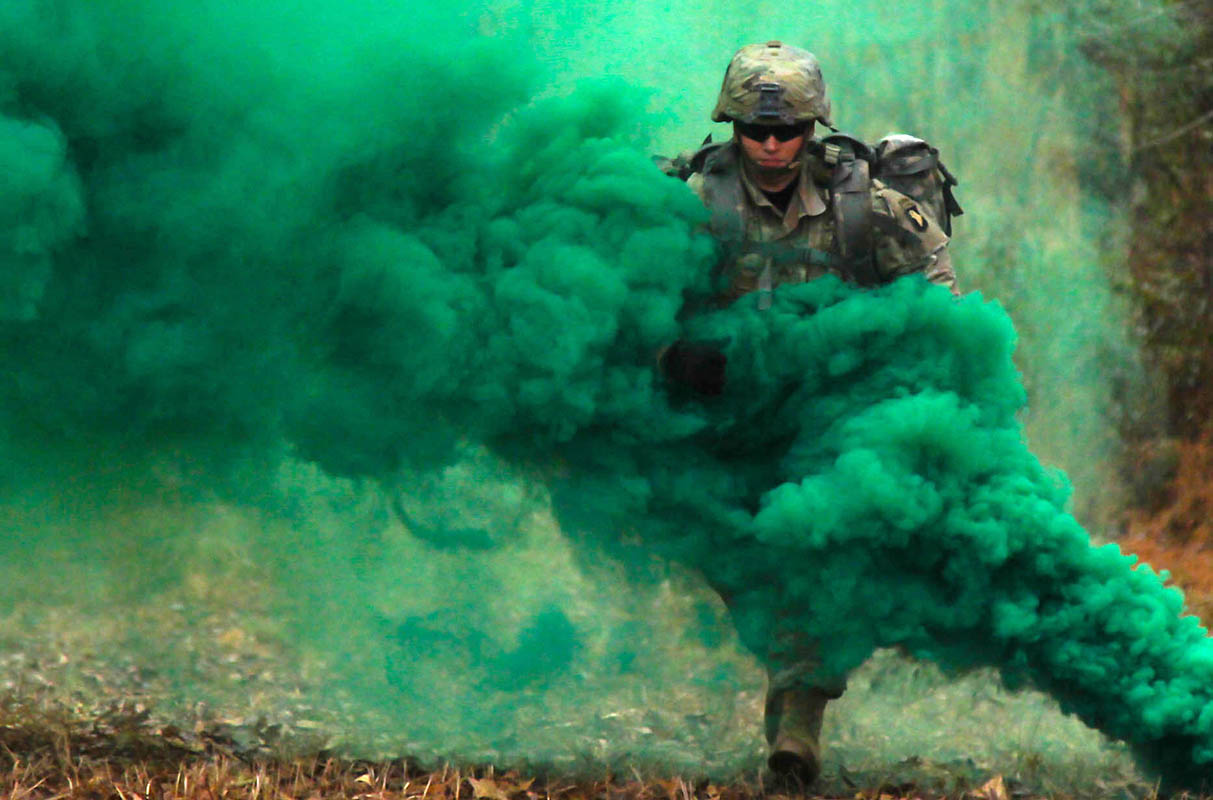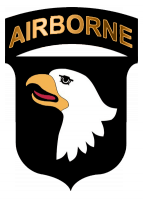 Fort Campbell, KY – More than 100 Screaming Eagles began preparation November 18th to test their skills in the medical field and earn an Expert Field Medical Badge.
Fort Campbell, KY – More than 100 Screaming Eagles began preparation November 18th to test their skills in the medical field and earn an Expert Field Medical Badge.
“It is by standard one of the hardest badges to earn across the Army,” said Maj. Sarah Burlee, medical operations officer for 101st Airborne Division Sustainment Brigade, 101st Airborne Division (Air Assault), and officer in charge of EFMB testing. “Not everyone can be an expert.”
Experts are considered to be at the top of their fields. For Soldiers who earn the EFMB this is no different.
“It was built statistically so that your top percentages earn the EFMB,” Burlee said. “It’s not your medium block, not your top-half block, it’s the top block.”
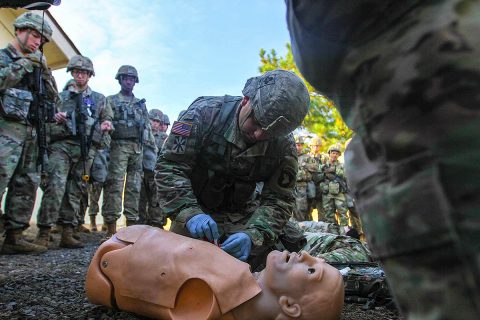
Designed to put the total Soldier profile to the test, the combat training lanes assess the candidates’ medical and Soldier expertise.
Each lane examines the Soldier’s medical prowess as he or she completes various Soldier tasks throughout testing.
Candidates run through everything from eight-page patient evaluations and triage to establishing secure communication for a nine-line medical evacuation and decontamination from a chemical, biological, radiological and nuclear attack.
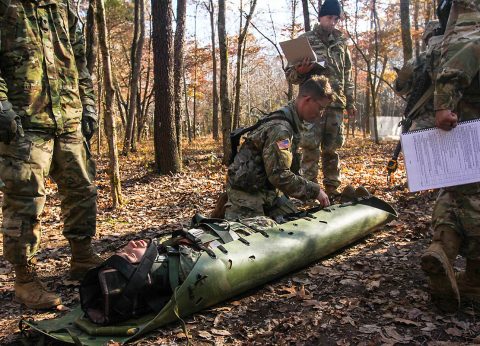
In addition to the CTLs, Soldiers must score 80 points or better in each event of the Army Physical Fitness Test, complete night and day land navigation courses and finish with a 12-mile ruck march. With only 144 hours from the first pushup to the end of the ruck march, once testing starts it is complete each task successfully or go home.
For some the rigors of testing can be overwhelming, but for a select few the crucible provides an opportunity for them to rise to the top.
“We had a 9% passing rate during fiscal year 19, those guys earned it,” Burlee said.
The EFMB is open to anyone in the medical field regardless of job title, and when a Soldier dons the badge units can rest assured they have someone who is capable of making a difference.
“They’ve got a Soldier who just spent two weeks testing the rigors by line,” Burlee said. “So they’ve got a good Soldier and they have someone who is medically capable of helping them.”
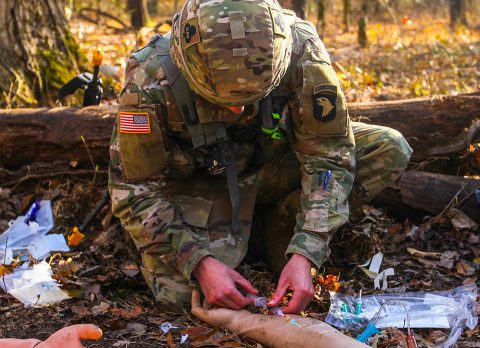
An example of this would be 1st Lt. Haley Guzman, health services administration officer and executive officer for C Company, 626th Brigade Support Battalion, 3rd Brigade Combat Team.
Guzman earned her EFMB in May.
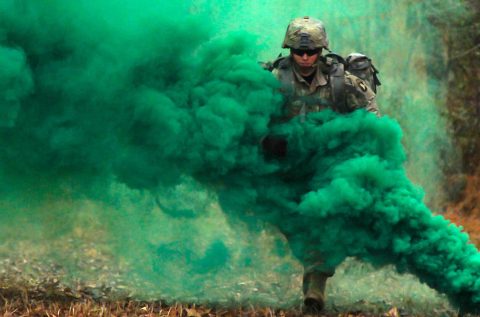
“It was really rewarding to get through on the first try,” she said. “It’s a lot harder than people think, one of the worst tasks required 128 steps in sequence.”
After earning her badge, Guzman took her expertise to new candidates.
As the executive officer for her company Guzman planned and resourced coaching for Soldiers in her battalion.
“We ended up training about 80 Soldiers in preparation for this round of EFMB testing,” she said.
As the OIC for CTL 2, Guzman provides insight not only for the Soldiers going through testing but also the other instructors.
“It’s been exciting to incorporate comments from the after-action report last time and hopefully help more candidates get their badges this time,” she said.
The EFMB is where occupational expertise and Soldier proficiency meet.
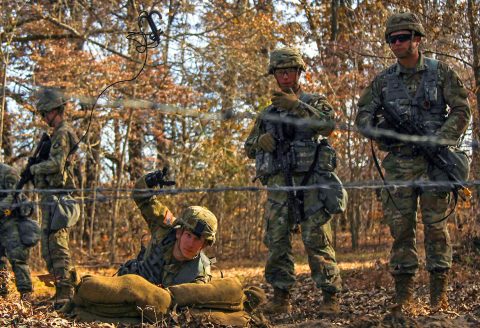
For those seeking to earn the EFMB, training must start with an understanding of why the testing is so rigorous.
“As part of the medical community you are going to be imbedded in units where you’re expected to perform Soldier skills,” Guzman said. “You have to be able to be a basic Soldier and then after that when you’re exhausted be able to save people’s lives.”

